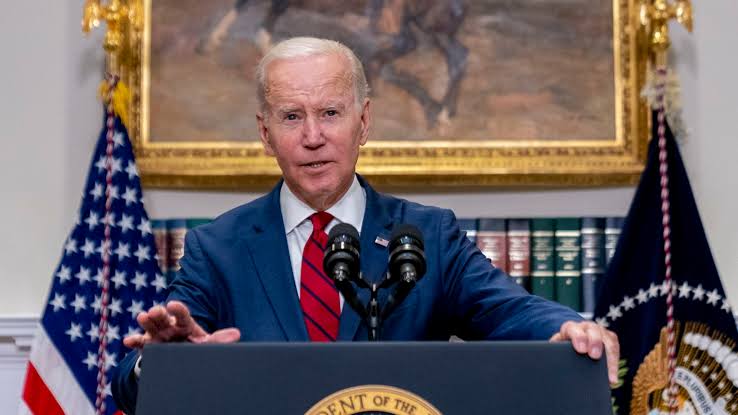Will Joe Biden push through one final dark money deal in his closing days?

By Anand Sharma
As President Joe Biden approaches the twilight of his presidency, his administration appears intent on leaving its mark through a series of controversial decisions that align closely with the interests of his political allies.
In the final days of his term, one particularly contentious issue has emerged: the public nuisance lawsuit out of Hawaii, Sunoco LP v. City and County of Honolulu, Hawaii.
This case has drawn national attention due to its potential to reshape energy policy and consumer markets under the guise of addressing climate change.
The case in question is part of a broader strategy employed by environmental activists, trial lawyers, and local governments to hold energy companies accountable for climate change.
These public nuisance lawsuits aim to secure massive financial settlements to fund green initiatives while imposing stringent regulations on energy production.
In essence, the lawsuits seek to force energy companies to pay for the supposed damages of climate change-an effort that critics argue will have far-reaching consequences for American consumers.
Honolulu’s lawsuit targets several energy companies, accusing them of contributing to climate change and demanding billions of dollars in damages.
Should the city succeed, the funds would likely be funneled into local green projects, further advancing a progressive agenda. This legal approach, however, raises significant questions about the role of local governments in shaping national energy policy and the potential for judicial overreach.
The Supreme Court has already demonstrated interest in the Honolulu case by requesting input from the Biden administration’s Department of Justice (DOJ).
Specifically, the Court asked Solicitor General Elizabeth Prelogar to weigh in on whether the case warrants Supreme Court review. This move signals the Court’s recognition of the case’s significance and its potential to set a precedent for similar lawsuits across the country.
Under normal circumstances, the solicitor general’s role is to provide objective legal analysis.
However, critics contend that the Biden administration’s response was heavily influenced by political considerations, favoring the interests of liberal donors and environmental activists over a neutral legal assessment.
By urging the Supreme Court not to take up the case, the administration effectively aligned itself with those seeking to use public nuisance law as a tool for advancing climate policy.
The stakes in this case have only intensified following former President Donald Trump’s return to office. With a new solicitor general poised to take over the DOJ, the dynamic surrounding the Honolulu lawsuit could shift dramatically.
A Trump-appointed solicitor general is likely to adopt a more skeptical view of public nuisance lawsuits, emphasizing the potential for judicial overreach and the broader economic implications of such cases.
Given this impending transition, the Supreme Court faces a critical decision: whether to act on the case now, under the Biden administration’s guidance, or wait for input from the incoming Trump administration.
The latter option could provide a more balanced perspective, free from the political considerations that critics argue have clouded the Biden administration’s handling of the case.
At its core, the Honolulu case raises fundamental questions about the limits of public nuisance law and its potential to reshape national policy.
Critics warn that allowing such lawsuits to proceed unchecked could have dire consequences for consumers. For example, imposing liability on energy companies for climate change could lead to higher energy prices, reduced product availability, and increased government control over consumer choices.
Moreover, the case highlights key sovereignty issues, particularly the extent to which local governments can impose their policy preferences on the rest of the country.
By leveraging public nuisance law, cities like Honolulu could effectively dictate national energy policy, bypassing the legislative process and undermining the authority of federal regulators.
The Honolulu lawsuit is not an isolated incident but rather part of a coordinated campaign by environmental groups, trial lawyers, and liberal donors to advance climate policy through the courts.
This strategy has been years in the making, with substantial financial backing from progressive organizations.
By targeting energy companies, these lawsuits aim to achieve policy goals that have faced resistance in the legislative arena.
However, this approach has faced significant criticism for prioritizing political objectives over sound legal principles.
Critics argue that public nuisance law is ill-suited for addressing complex issues like climate change, which require comprehensive, science-based solutions rather than piecemeal legal battles.
Moreover, they warn that these lawsuits could set a dangerous precedent, opening the door to a flood of litigation targeting various industries for broad societal issues.
The Supreme Court’s handling of the Honolulu case will have far-reaching implications, not only for the energy sector but also for the broader legal landscape.
By taking up the case, the Court could clarify the limits of public nuisance law and provide much-needed guidance on the role of the judiciary in shaping national policy.
Conversely, declining to review the case could embolden activists and local governments to pursue similar lawsuits, further entrenching the use of public nuisance law as a political weapon.
For the Biden administration, the stakes are equally high. With less than two weeks remaining in his term, President Biden has a narrow window to cement his legacy on climate policy.
However, critics warn that his administration’s handling of the Honolulu case reflects a broader pattern of prioritizing ideological objectives over the interests of everyday Americans.
As the Supreme Court deliberates on whether to review the Honolulu case, it faces a critical test of its independence and commitment to the rule of law.
By resisting political pressure and focusing on the legal merits of the case, the Court has an opportunity to reaffirm its role as a neutral arbiter and safeguard against judicial overreach.
For consumers and policymakers alike, the outcome of this case will have lasting implications. Whether the Court decides to intervene or allow the case to proceed unchallenged, its decision will shape the future of climate policy, consumer markets, and the balance of power between local and federal authorities.
As President Biden’s term draws to a close, the Sunoco LP v. City and County of Honolulu case represents a pivotal moment for his administration and the broader climate policy debate.
The Supreme Court’s decision will not only determine the fate of this particular lawsuit but also set the stage for future battles over the role of public nuisance law in addressing complex societal challenges.
In these final days, all eyes are on the Court-and on Biden-to see whether one last dark money giveaway will slip through or whether judicial independence will prevail.




